It was fascinating to watch Hillary Clinton and Bernie Sanders duke it out in the New...
Segregation Now, Segregation Forever?
Photo by Jonathunder.
Sixty years ago, almost to the date, Rosa Parks and her supporters made a bold move against segregation, and for civil rights, by refusing to bow to the rules of white supremacy. If you Google “Rosa Parks segregation,” the first thing that pops up is a link to a Scholastic lesson for school children, titled “Rosa Parks: How I Fought for Civil Rights.”
If Parks were around today, she might be surprised to learn that segregation, via school choice, is now being touted as a “civil right,” and a form of democracy, especially when it comes to charter schools. For an example of this, look no further than Minnesota, home of the charter school movement.
Minnesota passed the country’s first charter school law in 1991, opening the doors to a new, supposedly innovative way to educate public school students. And some charter schools in Minnesota and beyond do indeed exist peacefully alongside traditional district schools, in the form of small laboratories for flexible, more adaptive teaching and learning practices.
But a recent class action lawsuit filed in the Twin Cities underscores another distinguishing aspect of charter schools: they are propelling resegregation of schools across the United States. In a state that once had fairly strict racial desegregation guidelines—abandoned in the mid-1990s to make way for school choice--the effect is particularly dramatic.
Minneapolis lawyers Dan and John Shulman, who are father and son, filed the lawsuit in November of this year, along with eight other plaintiffs, claiming that Minneapolis and St. Paul’s increasingly racially and economically isolated schools are most certainly not providing low-income children of color with a “separate but equal” education.
Statewide data showing increasing segregation backs up their claim.
Families in Minneapolis and St. Paul can choose from a wide array of publicly funded, racially and culturally specific charter schools (while the public school districts, meanwhile, are reportedly also becoming more segregated).
St. Paul has a German immersion charter school, which is 91 percent white, although census data shows the school sits in a diverse neighborhood. St. Paul is also home to at least two more virtually all white charter schools, Nova Classical Academy and Great River Montessori School—both of which have long wait-lists each year. Beyond this, St. Paul has schools that cater to many ethnically spliced populations, such as Latino families (Academia Cesar Chavez) and Hmong families (Hmong College Prep Academy High School).
Bill Wilson is the director of another St. Paul charter school, Higher Ground Academy, whose 591 students are mostly from East Africa. Demographic data shows that the neighborhood around Wilson’s school is 60 percent white. But that mismatch doesn’t bother Wilson.
In a Minneapolis Star Tribune article about the pending desegregation lawsuit, Wilson bristled at the idea that today’s “choice-driven” segregation is anything like the court mandated racial divides he experienced as a child. Instead, Wilson told the reporter that, “Choice is like a civil right,” and that, in his eyes, “Choice is democracy.”
But that’s a slippery slope. School choice—as a solution to unequal educational opportunities—brings its own problems, and has roots in a racist response to the 1954 Brown v. Board desegregation ruling. In an Alternet piece titled “The Racist History of the Charter School Movement,” Lehman College professor Christopher Bonasita argues that many charter schools employ “sifting mechanisms,” in an attempt to stack their rosters with the students most likely to do well on high stakes standardized tests.
The “sifting mechanisms” Bonastia refers to include rejecting more high needs kids, including English language learners, kids who live in poverty, and those with special ed needs. The result, in Bonastia’s view, whether intentional or not, is ”reinscribing” racial and economic segregation. And this fits with the white supremacist framework that has, unfortunately, existed hand-in-hand with our country’s democratic ideals.
While some, like Wilson of Higher Ground Academy, see this “reinscribing” as a natural consequence of parental choice, the choice model is trapping more kids of color in underperforming, unstable schools.
Academic outcomes for Minnesota’s charter schools show that, by a large percentage, these schools are, in the words of Minneapolis reporter Kim McGuire, “dramatically worse than traditional public schools.” How much worse? In one example, McGuire and the Star Tribune found, in a February, 2015 analysis, that just over half of charter school students were proficient in reading, compared to 72 percent of their peers in traditional public schools.
In McGuire’s article, charter school operators defend their schools, in spite of the often poor academic outcomes. The director of Minneapolis’s LoveWorks Academy, for example, says her school’s students--who performed at the absolute bottom of the test scale--have “never had the chance to be successful,” and come from challenging backgrounds.
LoveWorks Academy is there to help the kids who need it most, she says. But like many racially isolated charter schools, LoveWorks has a much higher student suspension rate than the public schools. LoveWorks Academy serves just over 220 students, and 98.2 percent of them are black. Among those 200-plus students in the 2013-2014 school year, there were 137 suspensions. That is an incredibly high rate, in comparison to the Minneapolis Public Schools, whose suspension rate in 2013-2014 was around 12 percent.
The Minneapolis Public Schools came under scrutiny from the federal Office of Civil Rights for suspending black students at a much higher rate than white students. In the 2014-2015 school year, 78 percent of the district’s suspensions were handed out to African-American students, who make up just 37 percent of the district’s overall population. In response to this troubling news, the Minneapolis schools recently announced a moratorium on suspensions for non-violent offenses for the district’s K-5 students.
But no similar scrutiny has been applied to Minnesota’s charter schools, perhaps because they are, like LoveWorks Academy, almost exclusively racially segregated. No racial disparity exists in LoveWorks’ incredibly high suspension rate because the school serves, for the most part, only black students. And this pattern holds true for most Minnesota charter schools, including the ones that are frequently touted as being “beat the odds,” miracle schools that “outperform” public schools on high stakes tests.
The lack of improved academic outcomes for most charter schools, along with very high suspension rates for many, should poke holes in the idea that today’s school choice schemes are a victory for civil rights.
The new lawsuit filed in Minnesota will test whether or not school segregation still matters in the era of school choice.
Sarah Lahm is a contributor to the Progressive Magazine and Northcentral Regional Progressive Education Fellow
Topics:
More
- Subscribe
- Featured Video
- Recent Stories
- Recent Comments
- Poetry


Donald Trump, even before the early caucuses, had profoundly disrupted the Republicans. But how, exactly?

Research shows that people with psychiatric disabilities are no more likely than anyone else to commit acts of...
By Wendell Berry
Manifesto: The Mad Farmer Liberation Front
Love the quick profit, the annual raise, vacation with pay. Want more of everything ready made. Be afraid to know your neighbors and to die. And you will have a window in your head. Not even your future will be a mystery any more. Your mind will be punched in a card and shut away in a little drawer. When they want you to buy something they will call you. When they want you to die for profit they will let you know. So, friends, every day do something that won’t compute. Love the Lord. Love the world. Work for nothing. Take all that you have and be poor. Love someone who does not deserve it. Denounce the government and embrace the flag. Hope to live in that free republic for which it stands. Give your approval to all you cannot understand. Praise ignorance, for what man has not encountered he has not destroyed. Ask the questions that have no answers. Invest in the millennium. Plant sequoias. Say that your main crop is the forest that you did not plant, that you will not live to harvest. Say that the leaves are harvested when they have rotted into the mold. Call that profit. Prophesy such returns. Put your faith in the two inches of humus that will build under the trees every thousand years. Listen to carrion—put your ear close, and hear the faint chattering of the songs that are to come. Expect the end of the world. Laugh. Laughter is immeasurable. Be joyful though you have considered all the facts. So long as women do not go cheap for power, please women more than men. Ask yourself: Will this satisfy a woman satisfied to bear a child? Will this disturb the sleep of a woman near to giving birth? Go with your love to the fields. Lie easy in the shade. Rest your head in her lap. Swear allegiance to what is nighest your thoughts. As soon as the generals and the politicos can predict the motions of your mind, lose it. Leave it as a sign to mark the false trail, the way you didn’t go. Be like the fox who makes more tracks than necessary, some in the wrong direction. Practice resurrection.
Wendell Berry is a poet, farmer, and environmentalist in Kentucky. This poem, first published in 1973, is reprinted by permission of the author and appears in his “New Collected Poems” (Counterpoint).



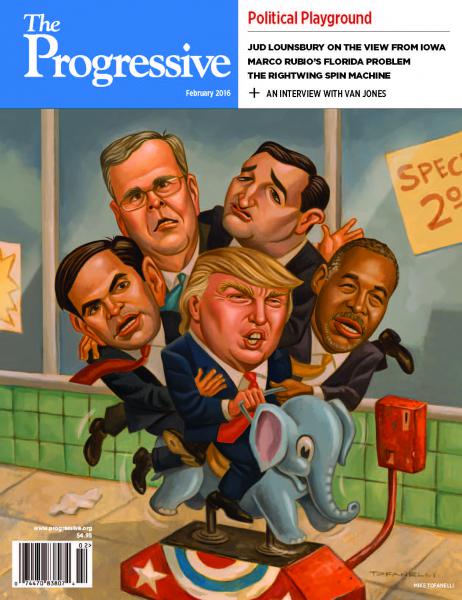
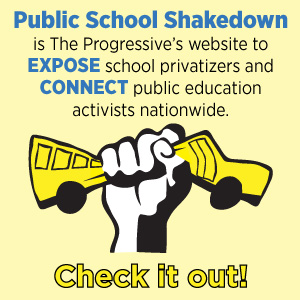
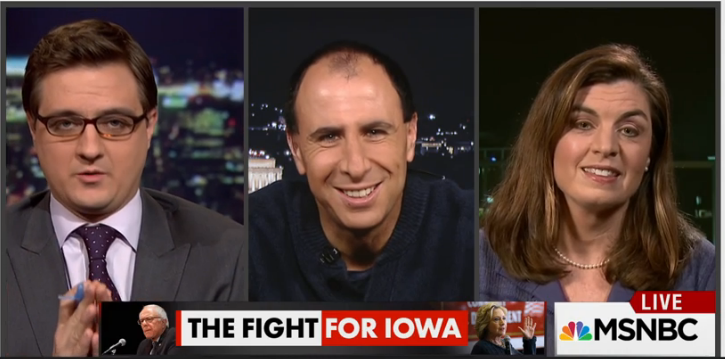


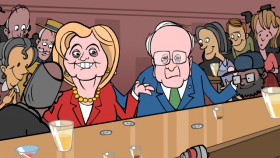
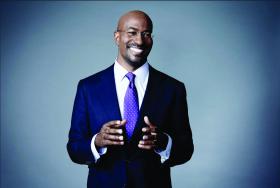
Comments
Why do people keep talking
Never discussed by the DFL
I always found Thurgood
Add new comment